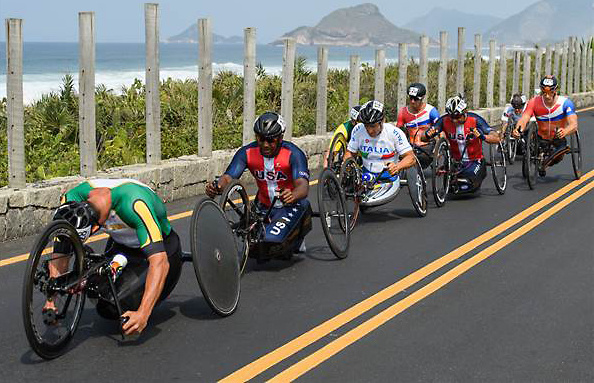Like thousands of veterans, he still carries the vestiges of war with him. The flashbacks, the sounds, the smells. He says the problem is not going to war but coming back from it.
Like thousands of veterans, he still carries the vestiges of war with him. The flashbacks, the sounds, the smells. He says the problem is not going to war but coming back from it.
De los Santos recalls the difficult years after he came back to the U.S. following a life-threatening injury.
“When you are there you are fine, nothing bothers you. You see your friends die, and the next day you gotta go out. It’s your comfort zone, that’s what you are trained to do,” he recalls. “But it’s when you come back that you start having all those symptoms… And people can see that you’ve changed,” says De los Santos, as he remembers his first years back.
In 2008, De los Santos’ patrol was hit by a rocket-propelled grenade in Afghanistan. As a result, he lost one leg and suffered a traumatic brain injury.

Back in the U.S., he had extensive rehabilitation, learning to adjust to life with a prosthetic leg while the ghosts of war haunted him. De los Santos wrestled with suicidal thoughts, he mixed alcohol with medication and drank until passing out. He would do anything just to escape the flashbacks – even if that meant taking his life. Despite the love and support of his wife, son and daughter, it was very tough.
But sports came into his life and changed it forever. The Achilles International Freedom Team of Wounded Veterans program saved him from depression, recalls De los Santos. One step at a time, he started getting into adaptive sports. He tried skiing, swimming, golfing, and then, hand cycling, which has become his passion. He is now a competitive para-cyclist, and has taken it to the professional level, competing in national championships and Paralympic Games.
Born in 1969 in Santo Domingo, Dominican Republic, his family moved to the United States in the early eighties.
According to a 2015 profileof post-9/11 veterans by the United States Department of Veterans Affairs, De los Santos is among the 13 percent of Latino vets who were inspired to join and serve the country they were not born in, but have embraced as home.

“Everybody represents the country in different ways, some guys do it nationally, some guys do it internationally – as soldiers – and some people like to do it in other areas, like in a friendly way, which is sports, and I love it,” says De Los Santos.
About his new mission, “I want to continue serving,” he said. “I just changed the mission into something different, so now I represent the country in para-cycling.”
Source: NBC















